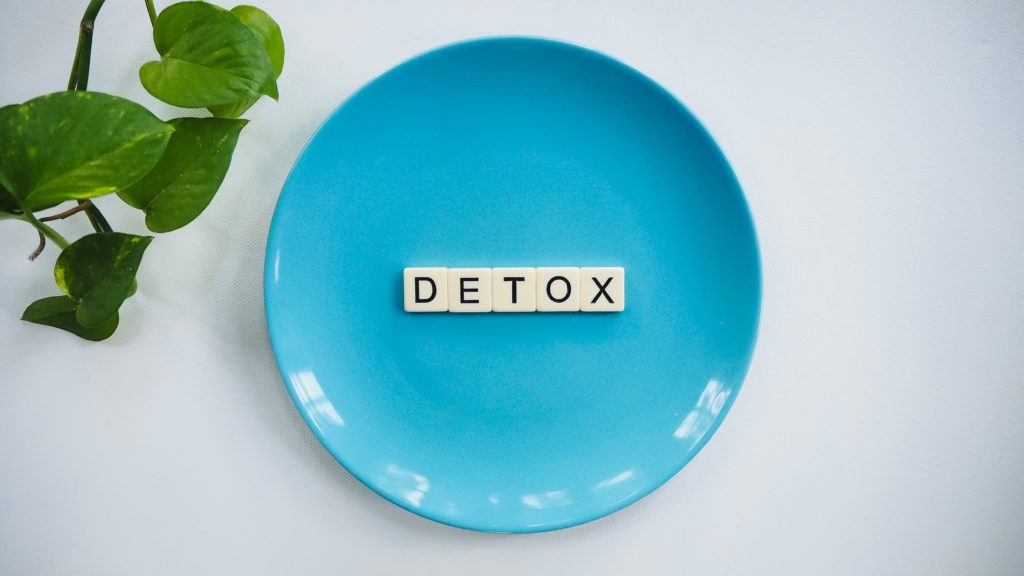Detoxification
What is Detoxification?
Detoxification is the biological process by which toxins are removed from the body. This can occur naturally through the liver, kidneys, and other organs, or it can be aided by external methods such as fasting, diet, and supplements. Detox diets and cleanses are popular, but there is little scientific evidence to support their effectiveness and they can be harmful if not done under medical supervision.

What is a Detox Plan and What I Does?
A detox plan, also known as a “detox diet,” is a program or regimen that aims to remove toxins from the body. This can include various practices such as consuming certain foods, avoiding others, and engaging in activities such as exercise and meditation. The goal of a detox plan is to cleanse the body, improve overall health, and promote weight loss. A detox plan may help the body’s natural cleansing process by removing toxins and pollutants from the body, improving digestion, increasing energy levels, and promoting overall health and well-being. This can be achieved through a variety of methods such as consuming a nutrient-dense diet, drinking plenty of water, engaging in regular physical activity, and avoiding or reducing exposure to known toxins.
Types of Detoxification Programs
There are several different types of detoxification programs, each with their own specific focus and methods. Some examples include:
- Medical detox: This type of program is typically done in a hospital or addiction treatment center and is supervised by medical professionals. Medications may be used to help manage withdrawal symptoms and make the detox process more comfortable.
- Natural detox: This type of program focuses on using natural methods such as diet, exercise, and supplements to detox the body.
- Fast or juice detox: This type of program involves consuming only juices or other liquids for a period to cleanse the body.
- Spa or resort detox: This type of program combines a detox program with a vacation, and often includes massages, yoga, and other wellness activities.
- Holistic detox: This type of program focuses on addressing all aspects of health, including physical, mental, and emotional well-being, through a combination of different therapies and practices.
- Sauna-based Detox: This type of program uses prolonged exposure to heat to aid in detoxifying the body. This type of program is often used to help with substance abuse and addictive behaviors. It’s important to note that detoxification is not a substitute for addiction treatment.

Pros and Cons of Detoxification
Detoxification, also known as “detox,” is the process of removing toxins from the body.
There are also some downsides to detoxing:
Cons:
- Can be expensive.
- May not be safe for certain individuals, such as pregnant women or those with certain health conditions.
- Can cause withdrawal symptoms, such as headaches and fatigue.
- Can be difficult to stick to, especially if the detox plan is restrictive.
- Lack of scientific evidence to support the benefits of many detox plans.
- Some detox plans can be harmful if done incorrectly.
It’s important to note that detox should not be used as a replacement for proper medical care and it’s always better to consult a doctor or a healthcare professional before starting any detox program.

Upon the Completion of a Detox Program What are the Steps Needed to Keep the Weight Off?
After completing a detox program, it is important to maintain a healthy diet and exercise regularly to keep weight down. Eating a balanced diet that includes a variety of fruits, vegetables, whole grains, and lean proteins can help provide the necessary nutrients while keeping calorie intake in check.
Additionally, incorporating regular physical activity, such as cardio and strength training, can help boost metabolism and burn calories. It is also important to stay hydrated by drinking plenty of water and limiting or avoiding sugary drinks. Setting realistic and achievable goals, tracking progress, and seeking support from friends, family, or a healthcare professional can also help maintain weight loss.
The Health Benefits of Detoxification
Detoxification, also known as detox, is the process of eliminating toxins from the body. There are a variety of methods that can be used for detoxification, including fasting, colon cleansing, and consuming specific foods or supplements.
Some of the potential health benefits of detoxification include:
- Improved digestion: Removing toxins from the body can help improve the function of the digestive system, which can lead to less bloating, constipation, and gas.
- Increased energy levels: By eliminating toxins from the body, you may find that you have more energy and feel less fatigued.
- Weight loss: Some detox diets can help you lose weight by reducing inflammation, and by helping you to eat healthier.
- Improved skin: Detoxing can help to clear up skin problems such as acne, eczema and rosacea.
- Improved immune function: Detoxing can help to strengthen the immune system, making it better able to fight off infections and illnesses.
It’s important to note that while detox diets and supplements may provide some benefits, they are not a substitute for a healthy diet, regular exercise, and other healthy lifestyle habits. It’s also important to speak with a healthcare provider before starting any detox program, especially if you have any underlying health conditions.